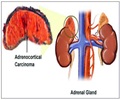Endocrine Society releases updated Clinical Practice Guideline on testosterone therapy.

TOP INSIGHT
New Clinical Practice Guideline on testosterone therapy calls for avoiding testing and treating healthy men for whom the risks and benefits of testosterone therapy are unclear.
"In a reflection of the growing attention paid to men's health issues, men's health clinics have mushroomed all over the country," said Shalender Bhasin, M.D., of Brigham and Women's Hospital in Boston, Mass., and chair of the task force that authored the guideline. "Yet recent surveys indicate many men are prescribed testosterone treatment without an appropriate diagnostic work up or monitoring plan. Some men receiving testosterone therapy do not have adequately documented hypogonadism, while others who have hypogonadism are not receiving the needed treatment."
Testosterone therapy is recommended for hypogonadal men to correct symptoms of testosterone deficiency. Men who are otherwise healthy do not need to be screened for hypogonadism. The guideline calls for avoiding testing and treating healthy men for whom the risks and benefits of testosterone therapy are unclear.
The Society recommends against routinely prescribing testosterone therapy to all men age 65 or older with low testosterone concentrations. The treatment decisions should be individualized and guided by the intensity of symptoms, the presence of other co-morbid conditions, and an explicit discussion with the patient of the long-term risks and benefits of testosterone treatment in older men. The scientific evidence for this recommendation has grown stronger since the 2010 guideline was released.
Men should only be diagnosed with hypogonadism if they display symptoms of a testosterone deficiency and their measurements of total or free testosterone are unequivocally and consistently low. Diagnosing hypogonadism can be challenging because the symptoms are nonspecific and may vary, depending on the individual's age, other medical conditions and factors such as how long the testosterone deficiency has persisted.
"We hope these recommendations will help clarify and dispel much of the misinformation about testosterone therapy," Bhasin said. "With this updated guideline, we were able to incorporate data from some of the most important randomized trials on testosterone conducted during the past three years. Relying on the latest and highest quality scientific evidence will help men and their healthcare providers determine when testosterone treatment is appropriate and when it is unlikely to benefit an individual's health."
The new guideline is co-sponsored by the European Society of Endocrinology.
Source-Eurekalert
 MEDINDIA
MEDINDIA




 Email
Email







